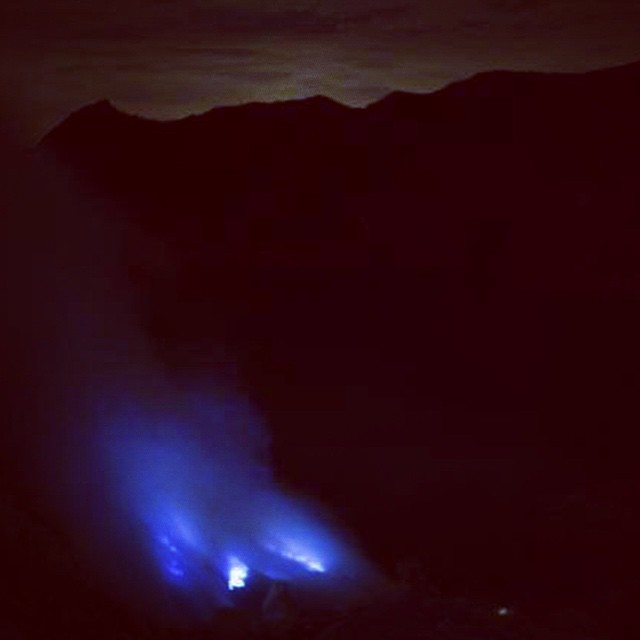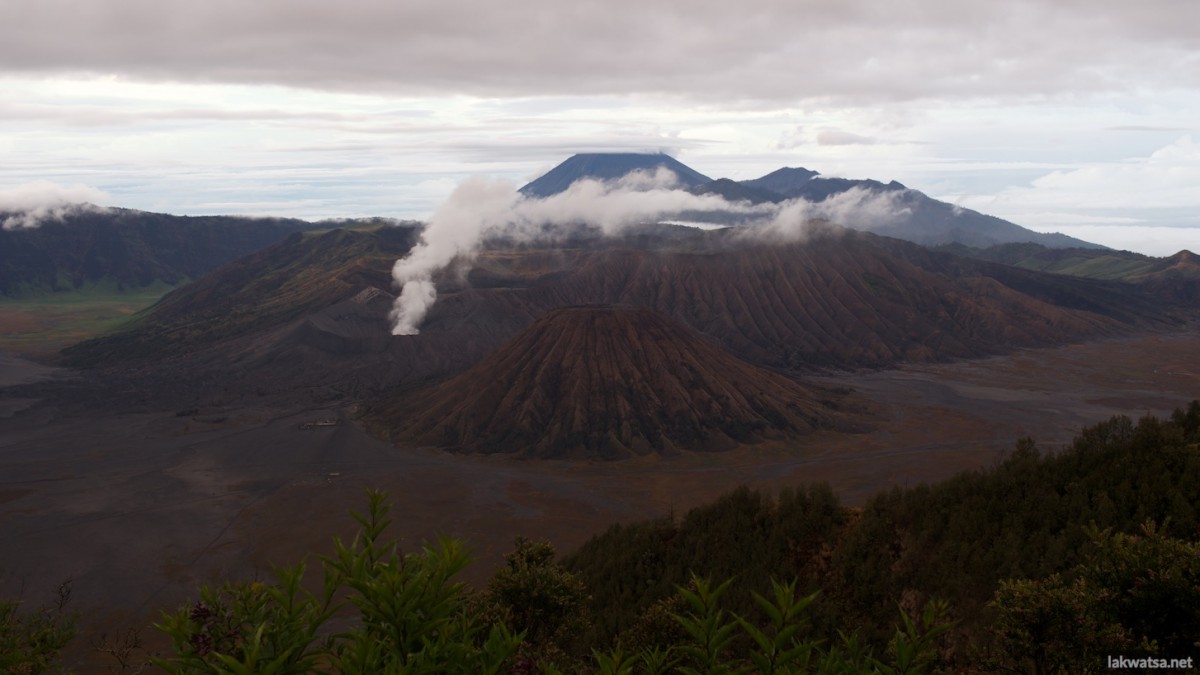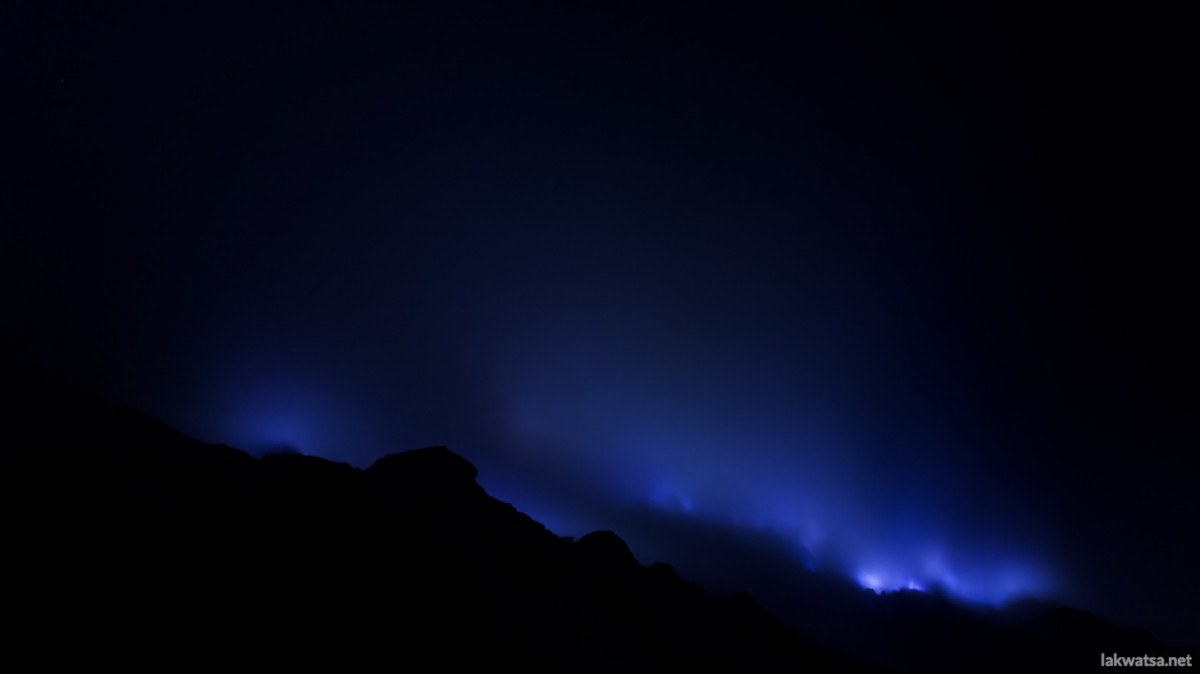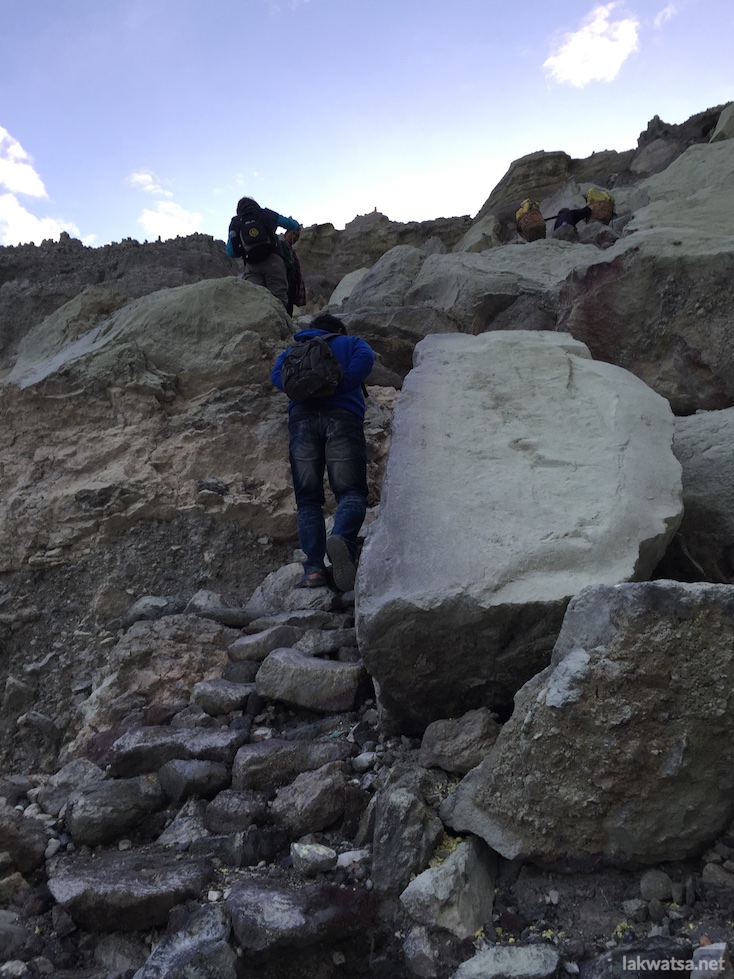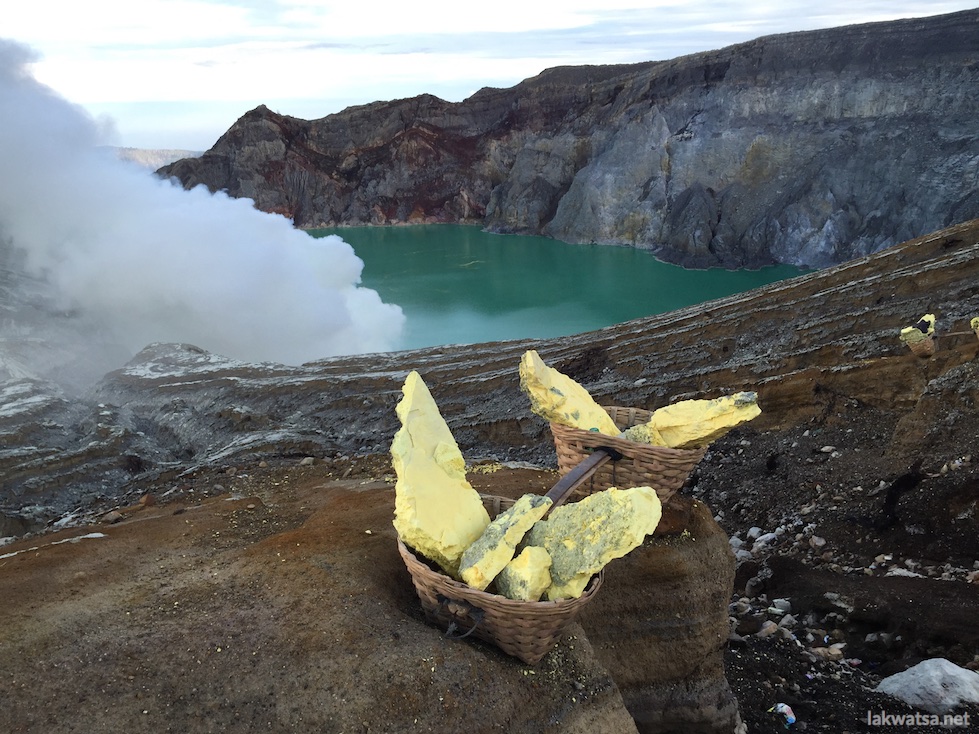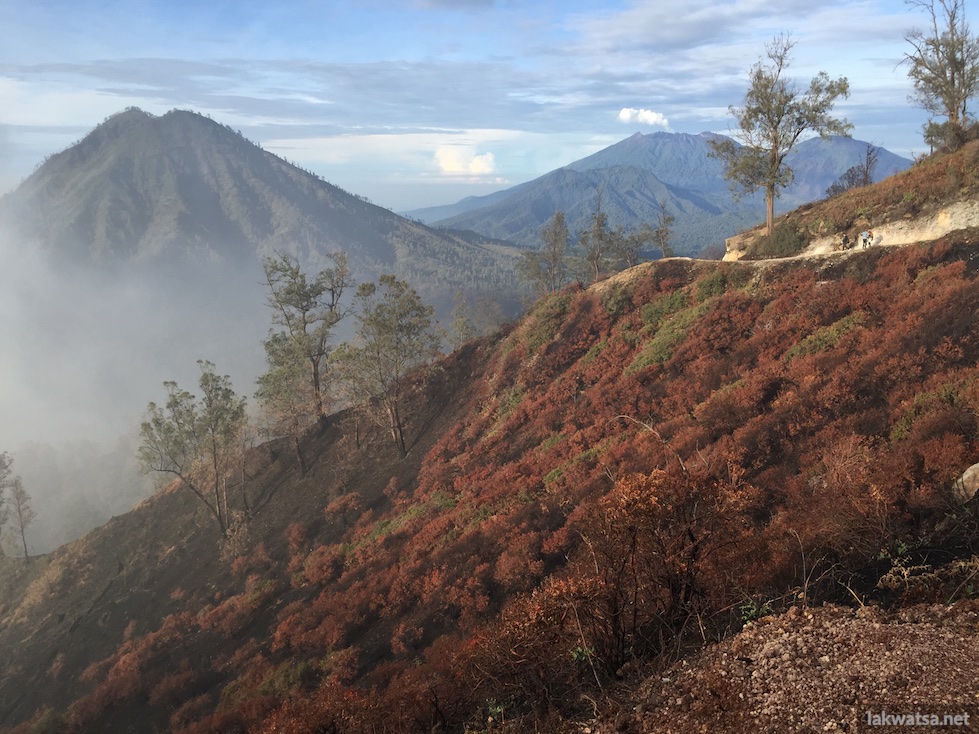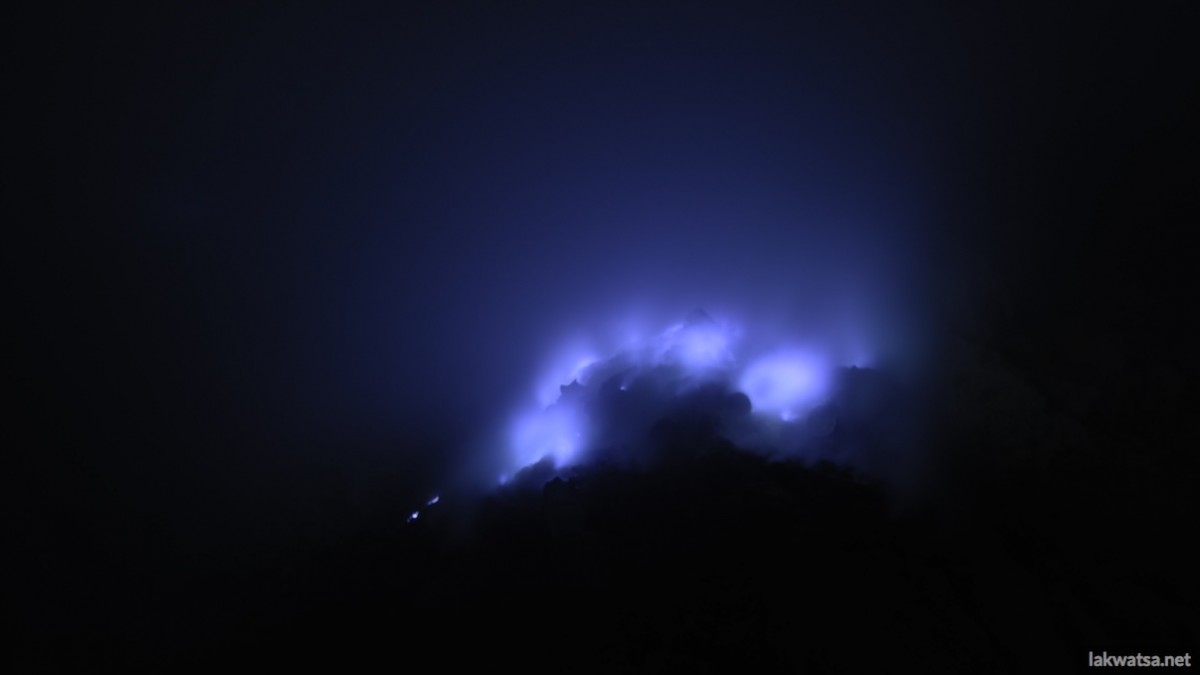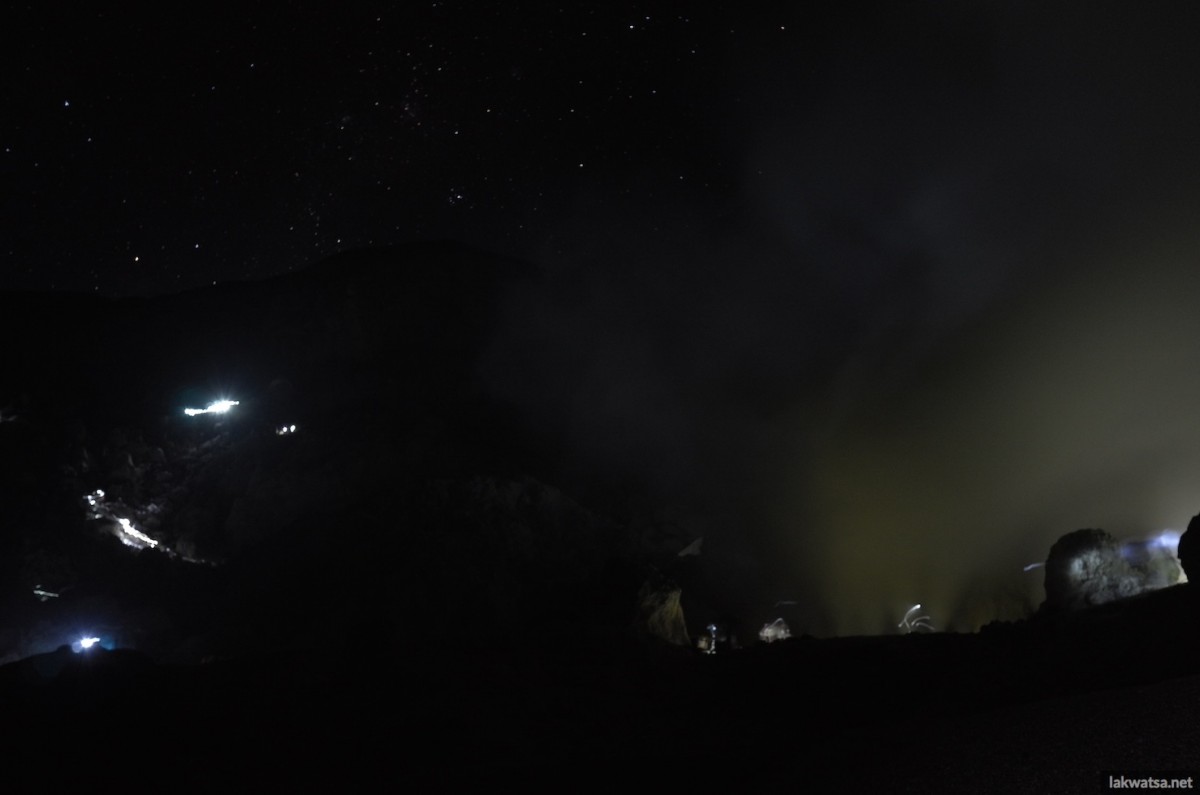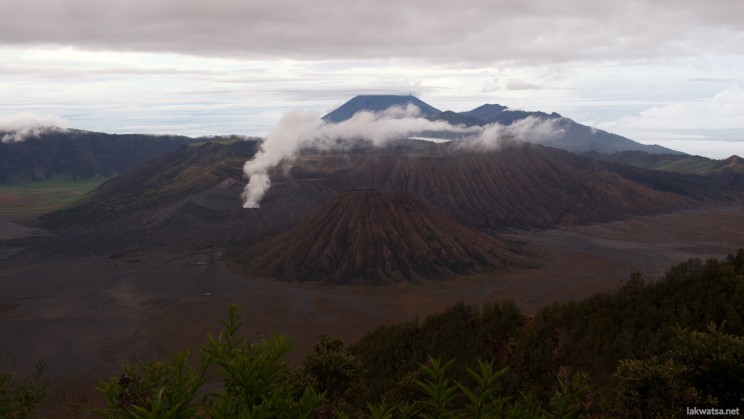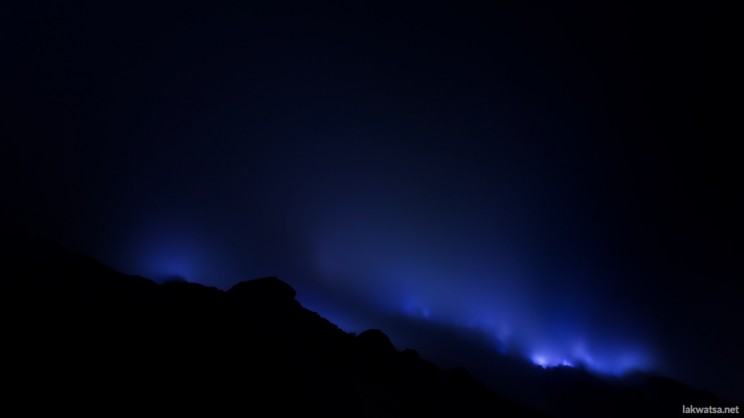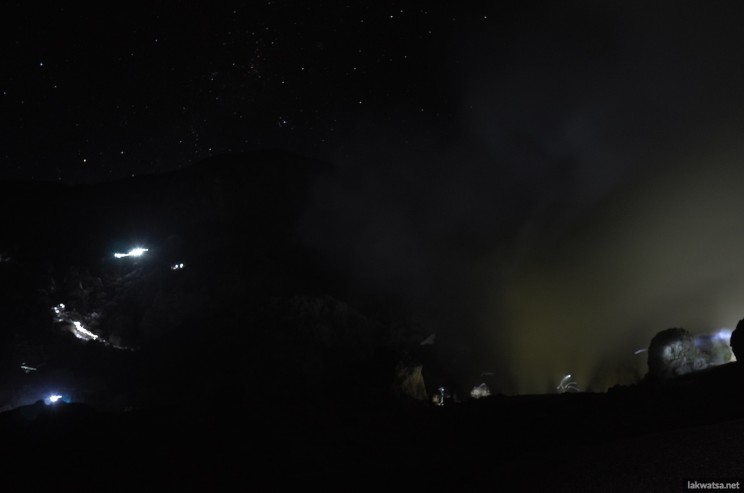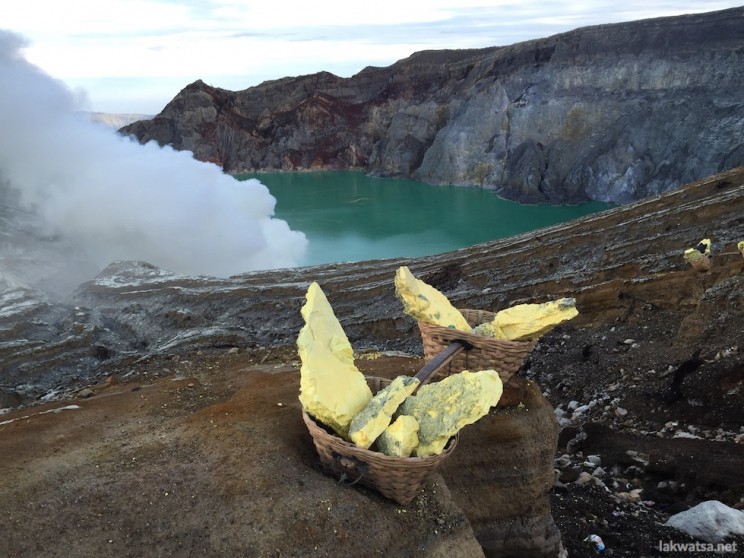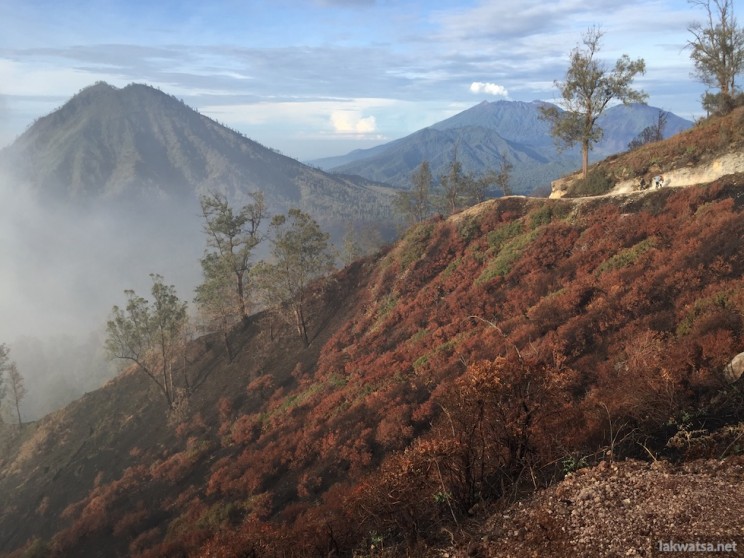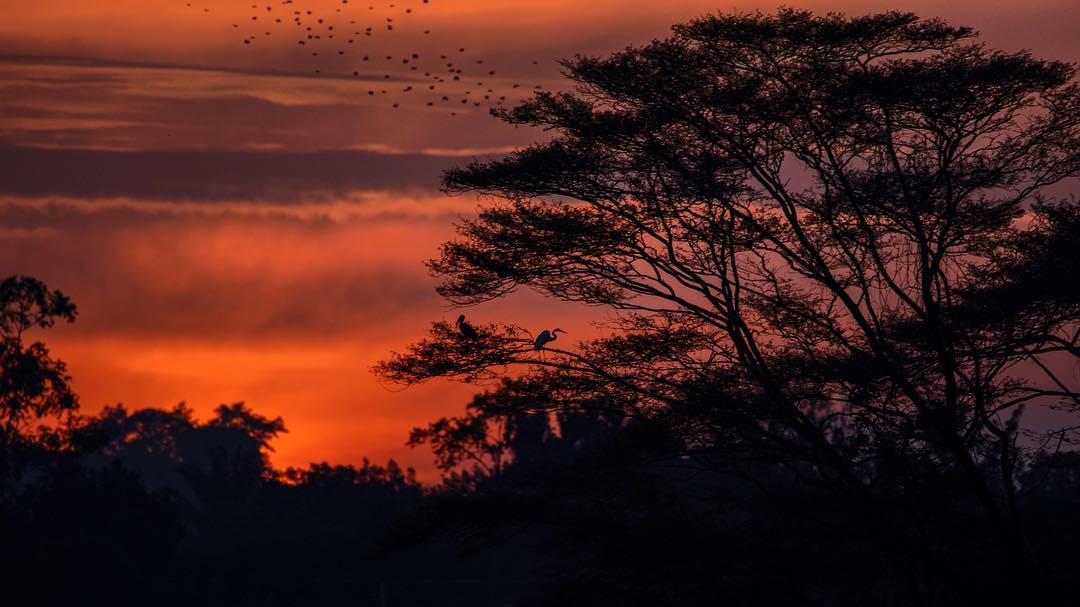Kawah Ijen (“Ijen Crater”), East Java, Indonesia
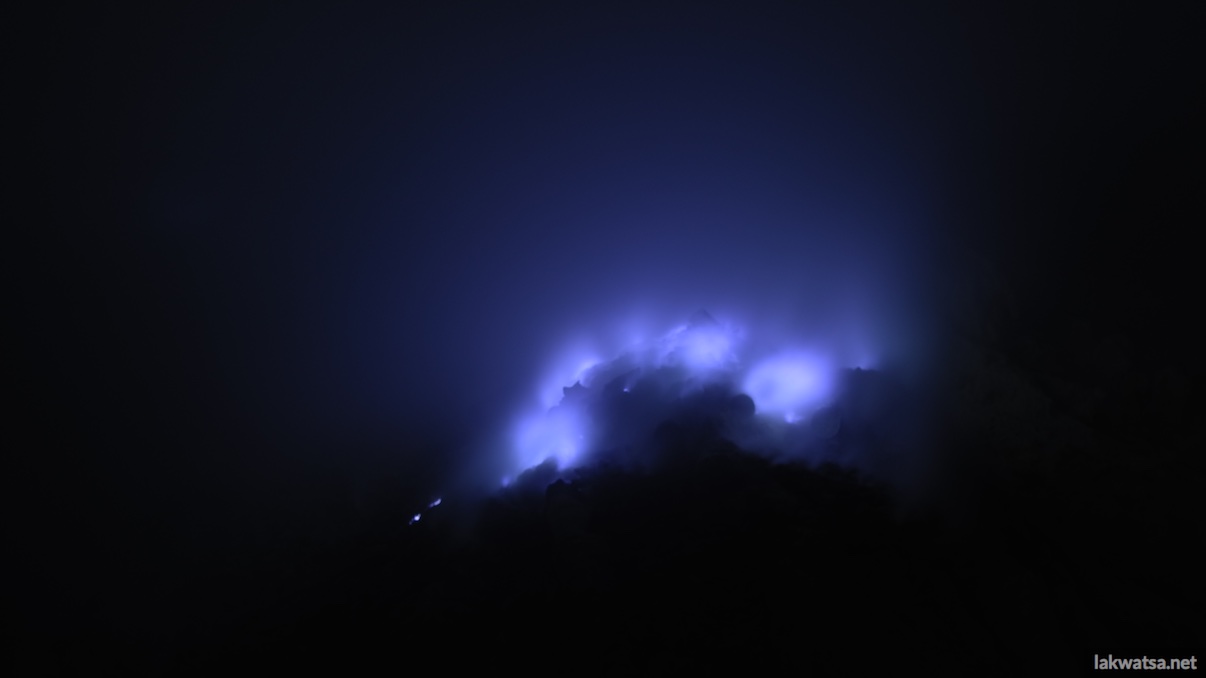
Along the East Java tourist circuit, the most oft-visited volcanic site is Mount Bromo.
The tourist facilities near the volcano and the ease of reaching the site are the main reasons why it is the most famous volcanic site of East Java. This popularity goes to the detriment of another beautiful volcanic site in the region: Ijen.
Ijen plays second fiddle to Bromo, and if you have to choose one volcanic site, why not choose the most practical one? Ijen is harder to reach; for one, it takes an hour and a half to hike the rim of Ijen, which is three times more than that of Mount Bromo!
In recent years though, one could argue that practicality shouldn’t weigh as much as to choose Bromo over the other. The Ijen trek is evolving, instead of just seeing the crater from Ijen’s rim to see the emerald acid lake from afar, more and more people go down the hole to see a beautiful phenomenon dubbed “The Blue fire of Ijen.”
The Blue Fire of Ijen. Deep down, the crater of Ijen is the largest blue flame area in the world. The fire is visible on midnight treks or treks after sunset. The Blue Fire emanates from Sulphur burning at very high temperatures.
As a result, most tours dedicated to this start the trek from the Ijen car park at 2 am, which means you leave your hotel at 11 pm or midnight.
There are always people going to the crater. Miners are here 24/7 to get sulfur for their livelihood. Conditions are hard as they have to carry on average 70 kilos of Sulphur on a very steep slope to get out of the Caldera.
At Dawn, it is nauseating to see the work conditions of the Sulphur miners vividly.
After Dawn, the Hike back to the camp is rewarding, the view can be spectacular, especially with the emerald-colored lake down the crater.
On the rim of the crater, as you head down away from the cavity, you may even get a view of Bali if the weather is beautiful. In any case, the neighboring volcanos are quite a view already.
If you are in East Java, the option of going to Kawah Ijen is worth it.

